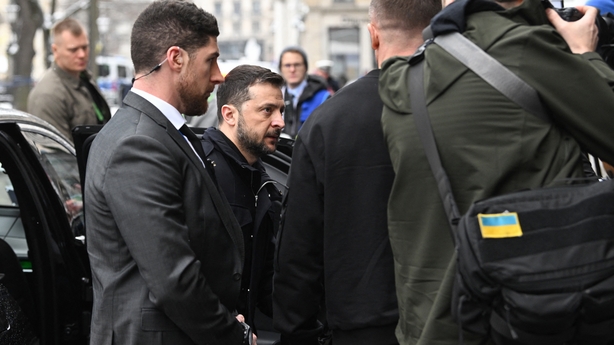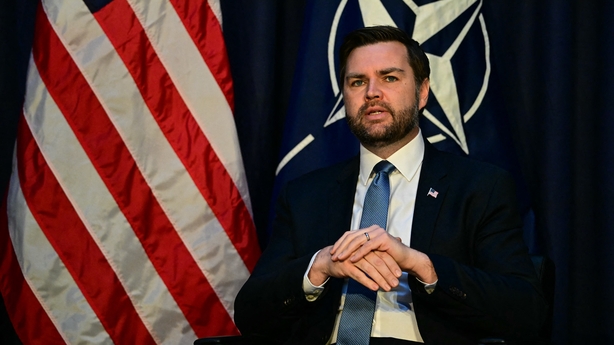Ukrainian President Volodymyr Zelensky has said that the military situation around the embattled eastern city of Pokrovsk - under threat of capture by Russian forces - had "improved".
Moscow has been closing in on the logistics hub for months and is now less than 5km (three miles) from its outskirts, according to the frontline tracking site DeepState.
The city lies on a key road used to supply Ukrainian troops across the front and if captured would allow Russia to sweep into the northern part of the Donetsk region.
"The situation has improved in the Pokrovsk sector in recent days. No details. But I would say that we are more confident there than we were before," Mr Zelensky told reporters on the sidelines of the Munich Security Conference.
Mr Zelensky did not elaborate on his comments.

Ukraine's overstretched and outgunned troops have been ceding ground across the frontline for over a year, losing more than a dozen settlements since January including the long-coveted mining town of Toretsk.
Moscow's defence ministry said today its troops had taken the villages of Dachne and Zelene Pole, also in the Donetsk region.
Around 60,000 people lived in Pokrovsk before Russia invaded Ukraine in February 2022, but most residents have now fled.
Only Zelensky can negotiate peace deal for Ukraine, says Macron
It come as French President Emmanuel Macron said only Mr Zelensky could negotiate on behalf of his country with Russia to end the war, warning a "peace that is a capitulation" would be "bad news for everyone", including the US.
"Peace that is a capitulation" would be "bad news for everyone", he said shortly after US President Donald Trump rattled Washington's NATO allies by speaking with his Russian counterpart Vladimir Putin about holding talks on Ukraine.
Yesterday, Mr Trump announced plans to begin negotiations, saying he thought Mr Putin "wants peace" in Ukraine and "would tell me if he didn't".
Mr Macron told the Financial Times that it would be up to Ukraine to discuss issues of territory and sovereignty but added that Europe has a role to play in regional security.
It "is up to the international community, with a specific role for the Europeans, to discuss security guarantees and, more broadly, the security framework for the entire region. That is where we have a role to play," he said.
Mr Zelensky is set to meet US Vice President JD Vance at the security conference in Germany, as Ukraine and its European allies worry the US and Russia will settle the Ukraine war over their heads.
Speaking on the sidelines of the conference, Mr Vance said that European allies should join any talks to end the war in Ukraine.
Asked by a reporter whether Europe should be involved in negotiations along with the US, Russia and Ukraine, Vance said: "Sure they should. Of course."

Among the European leaders, diplomats and generals in Munich, many hold grave concerns over the deepening chasm between the transatlantic allies and even for the post-World War II international order itself.
The new US administration signalled Ukraine would have to give up territory to Russia and that NATO membership for Kyiv was "impractical".
European allies were stunned to be bluntly informed that the future task of helping secure Ukraine would fall to them alone, in line with Mr Trump's "America First" stance and his heightened focus on China as the main strategic adversary.
Meeting NATO partners, Defence Secretary Pete Hegseth denied Mr Trump's 90-minute phone call with Mr Putin on Wednesday meant a betrayal of Ukraine's war effort.
EU foreign affairs chief Kaja Kallas said that "any deal behind our backs will not work" and that "appeasement also always fails".
Mr Zelensky, despite facing the prospect of having Ukraine's key demands ignored after years of gruelling war, has pushed back with moderate language, apparently eager to keep a seat at the table when the big powers strike a deal over his country's future.
He said it was "not very pleasant" that Mr Trump had called Mr Putin first before speaking to him, while again insisting he wanted to hammer out a "plan to stop Putin" with the United States before any talks happen.

